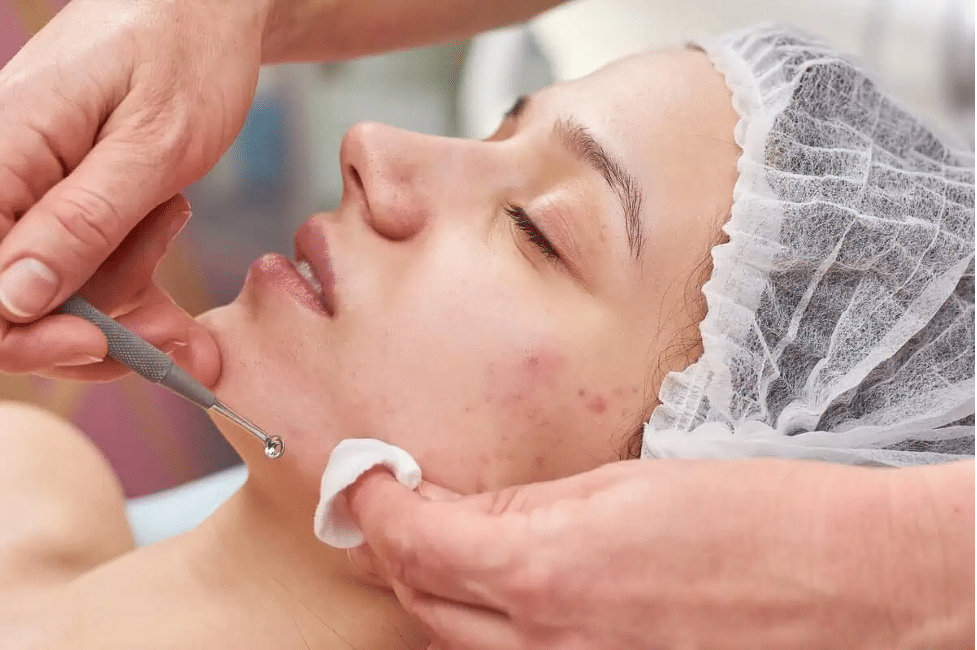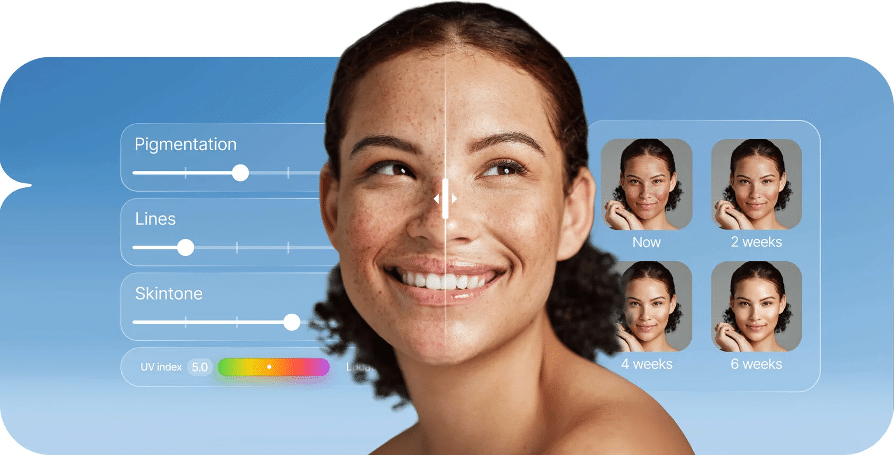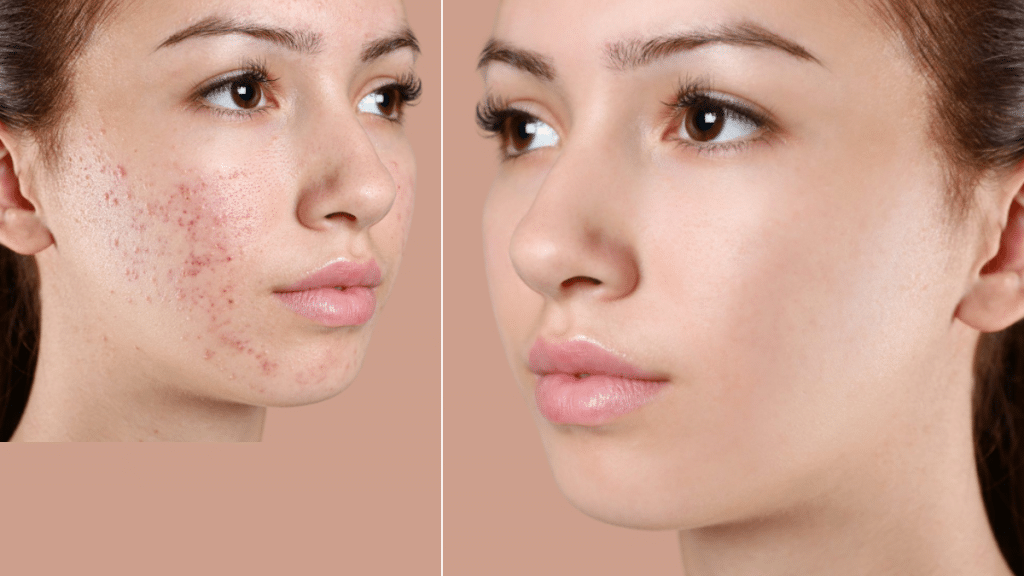Acne is a common skin problem that can affect anyone—teenagers, adults, and even children. Although acne is often associated with puberty, it can persist or appear later in life. Understanding what causes it, how to treat it, and how to prevent it can help you better manage your skin health.
What causes different types of acne?
Acne comes in a variety of forms, and each type has its own cause and severity. Knowing what type of acne you have is the first step in choosing the right treatment.
Blackheads and whiteheads
These types of acne are referred to as non-inflammatory acne:
- Whiteheads are closed pores clogged with sebum and dead skin cells.
- Blackheads are open pores where sebum oxidizes, causing the pores to darken—not due to dirt, but due to exposure to air.
These types are usually painless but still frustrating.
Papules and Pustules
These are inflammations:
- Papules are small, red, swollen bumps caused by clogged and irritated pores.
- Pustules are similar, but filled with pus and form white or yellow heads.
They are often caused by stress, bacteria, and hormonal changes.
Nodules and Cysts
These are severe forms of acne that form deep within the skin.
- Nodules are firm, painful bumps that do not contain pus.
- Cysts are larger, pus-filled lesions that can cause long-term scarring.
Hormonal imbalances, genetic predisposition, and excessive sebum production often contribute to acne.
Treatment options
The right acne treatment depends on the severity and type of acne. Here’s an overview:

Over-the-counter treatment options
- Benzoyl peroxide: Kills bacteria and reduces puffiness.
- Salicylic acid: Helps unclog pores.
- Retinoids: Like adapalene, they promote skin cell turnover and prevent future blockages.
Prescription medications
Topical antibiotics (such as clindamycin): Fight acne-causing bacteria.
Oral antibiotics: Such as doxycycline, used for moderate to severe acne.
Hormonal treatments: Birth control pills and spironolactone help regulate oil production.
Isotretinoin (Accutane): A potent oral medication used for severe cystic acne.
Dermatological Treatments in the Office
Cortisone Injections: Quickly reduce inflammation in large cysts.
Laser and Light Therapy: Reduce bacteria and improve skin tone.
Chemical Peels: Exfoliate the skin and unclog pores to prevent breakouts.
Acne Prevention Tips
Preventing acne isn’t always possible, but healthy skincare habits can reduce the risk:
- Wash your face twice a day with a gentle cleanser.
- Use non-comedogenic (pore-clogging), oil-free skincare products and makeup.
- Do not pop pimples to avoid scarring.
- Manage stress through exercise, mindfulness, or deep breathing.
- Avoid high-glycemic foods and excessive dairy, as these can cause rashes in some people.
Use smart tools to improve your routine
If you’re unsure which products are right for your skin type, AI tools like the skincare try-on from Haut.AI can help.. This virtual skin analyzer provides personalized product suggestions tailored to your skin’s unique needs, making it easier for you to develop an effective, targeted routine.When to seek professional help

When acne becomes painful, persistent, or leaves marks, it’s time to see an expert. A dermatologist can provide personalized care—from medical-grade treatments to advanced procedures that go beyond drugstore solutions. When you’re ready for expert advice, visit Dwoseth Dermatology to schedule a consultation and explore customized treatment options.
•
